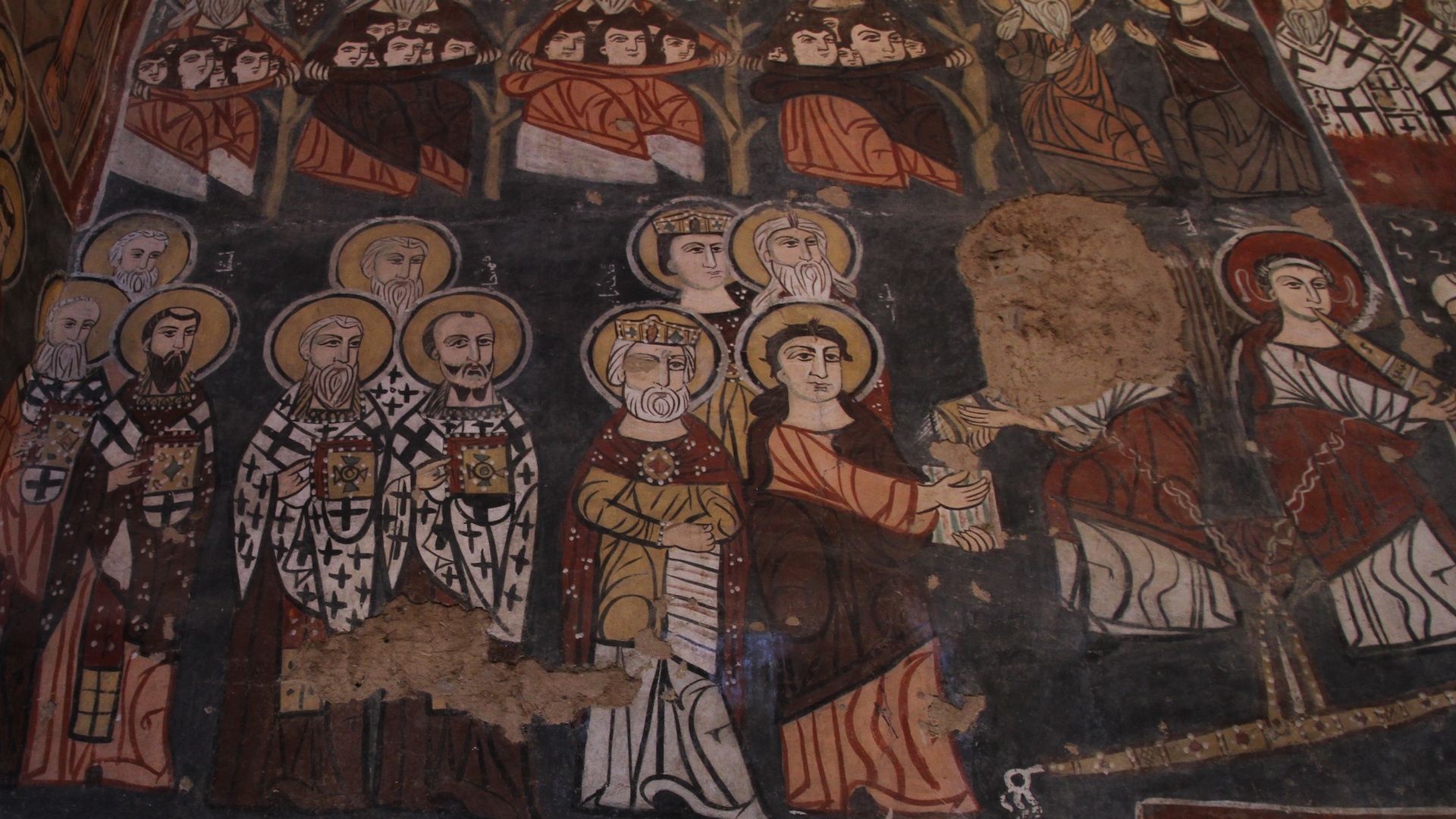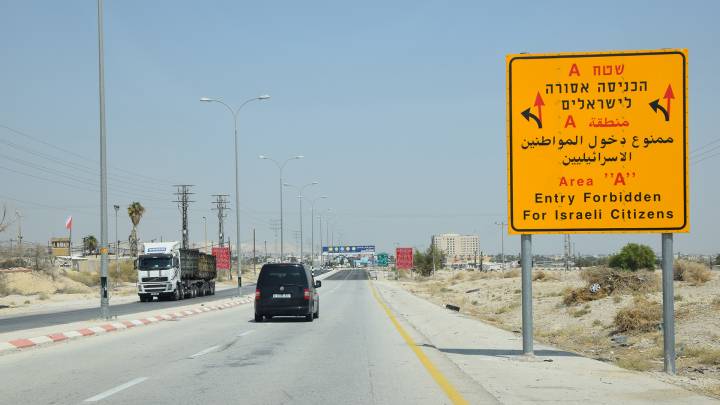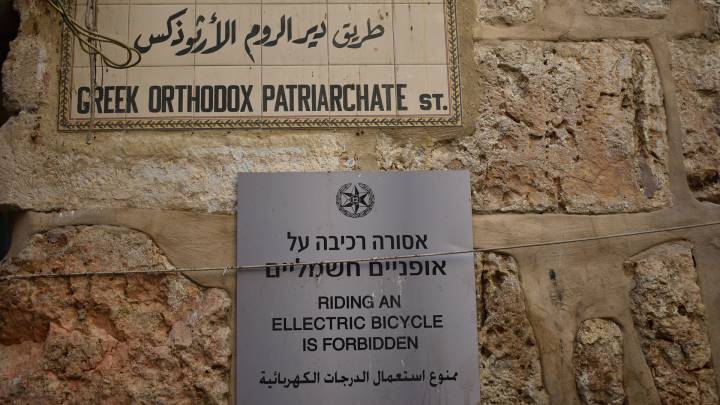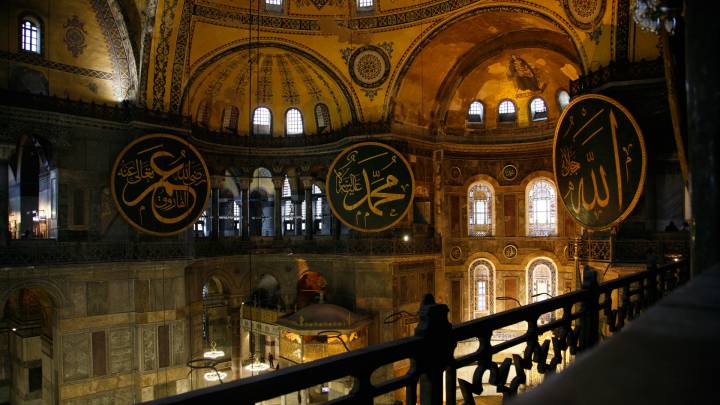Many countries in the Middle East allegedly guarantee freedom of religion as a constitutional right. In practice, this freedom is often nothing but illusory, as politicians simply override the judiciary.
In mid-December of last year, the two major Christian denominations in Germany presented a joint report on the religious freedom of Christians worldwide. They emphatically warned against the much feared extinction of Christianity in the Middle East.
According to the report, the repercussions of the reign of terror imposed by the so-called Islamic State (IS) militia have come to threaten the existence Christian communities scattered across various countries of the Middle East. However, the challenges do not exhaust the scope of the problem. Denying individuals the right to switch their religion puts the Middle East's Christian communities in particular under considerable pressure.
The mere fact that the Catholic and Lutheran leaderships have chosen to emphasize the absence of the right of conversion in their report deserves adequate recognition. The de facto non-existence of this right in the countries of the Middle East is usually met with silence by the international community, which - on some occasions - is eager to express understanding for the peculiarities of the countries and societies in this part of the world. Nevertheless debating the issue of religious conversion in the Middle East calls for a more nuanced approach.
Conversion: a one-way street
Focussing on the legal aspects, it becomes evident that conversion is mainly determined by arbitrary state norms and regulations. Even though all forms of religious conversion are forbidden in Middle Eastern countries, this ban only applies to Muslims. Muslims are explicitly not allowed to convert to Christianity, while every Christian is free to convert to Islam without being constrained by any state regulations.
Ensuring equality before the law would mean prohibiting conversion practices regardless of the individual’s religious affiliation. Instead, the legal systems of the region have managed to institutionalise religion-based discrimination. This state-sanctioned, non-equal treatment of religious minorities draws attention to a few other noteworthy aspects.
First, classifying citizens based on religious affiliation has considerable legal repercussions in the states of the Middle East. Especially family law, inheritance and civil law treat citizens of the same country very differently depending on their religion. For instance, Christians abide by a different family law than the one applied to Muslims. In some countries, such as Lebanon, these regulations may even vary across different denominations within the same religion. It is apparent how such state-mandated discriminatory policies bear major legal consequences, thereby affecting the role of state institutions across the Middle East.
Christians can convert openly to Islam and hence become subjected to Islamic family law. However, there is no specific state legislation covering such cases. On the contrary, the relevant regulations derive from various legislative documents.
In this context, the second aspect of the restriction of conversion is its legal haziness. There is no legally binding decision explicitly forbidding Muslims to switch their religion. Both the architects of the constitution, as well as the legislators remain silent on this point. In some cases, legislators chose to hide behind expressions such as apostasy or blasphemy, condemning conversion procedures from a normative perspective. In the end, it is often the judge who effectively assumes the role of a gatekeeper, safeguarding the sacred and thus unconditional attachment of Muslims to Islam.
Practices that elevate the status of Islam to a de facto state ideology
When it comes to the prohibition of conversion for Muslims, the judiciary combines both roles, legislative and executive, in one authority. This entails the third aspect of restricting religious conversion, namely the separation of powers. This simple principle does not apply when determining the conversion rights of Muslims. Therefore, the constitutionally guaranteed right of religious freedom is being seriously undermined by the fact that the judiciary in Middle Eastern countries fails to include the right to switch one’s religion or beliefs.
Affiliation with Islam is practically equalled to affiliation with a state ideology. Distancing oneself from this ideology is thus framed as an inadmissible attack on the integrity of the Muslim community. This attitude is clearly reflected in the rhetoric of ruling politicians who chose to condemn as apostasy or blasphemy even the mere intent of Muslims to consider switching their religion. Referring to the alleged independence of the judiciary, they thus justify their refusal to address the restrictions imposed on Muslim “wannabe converts”. Politics and law seem to be united in silent agreement to systemically deny Muslims the right of religious conversion. The majority of the population in the Middle East largely tolerates the status quo.
Even if Oriental Christians in the past have argued that a Christian should not convert to Islam under any circumstances, the state would nevertheless allow the conversion. The Christian communities in Middle East states have no legal leverage to limit the numbers of Christians converting to Islam. In these cases, the state refers to the formally guaranteed freedom of religious expression.
In contrast, the Muslim community may count on the intervention of state institutions if one of its members decides to convert to Christianity, declares his/her intention to do so in the future, or gives written or verbal signals that he/she has seceded from the religion of Islam. The recommended measures are many and range from prosecution to compulsory divorce and disinheritance. In some cases, the state institutions even operate independently. The prosecution department, for instance, does not even await a formal complaint in order to accuse someone of planning to secede from the religion of Islam. In many cases the department can take a decision independently, relying on its own investigations.
The fact that the West is beginning to address the right to conversion as an integral part of religious freedom signals the first step in a long-overdue debate. Eventually, it has to be acknowledged that there can be no freedom of religion without the freedom to switch that religion. Whether or not a religion should theoretically grant its followers an exit option is a separate issue. However, when a state starts intervening on behalf of a certain state-sponsored religion, penalising conversion with coercive legal measures, this threatens to undermine the very foundations of the established liberal order.




